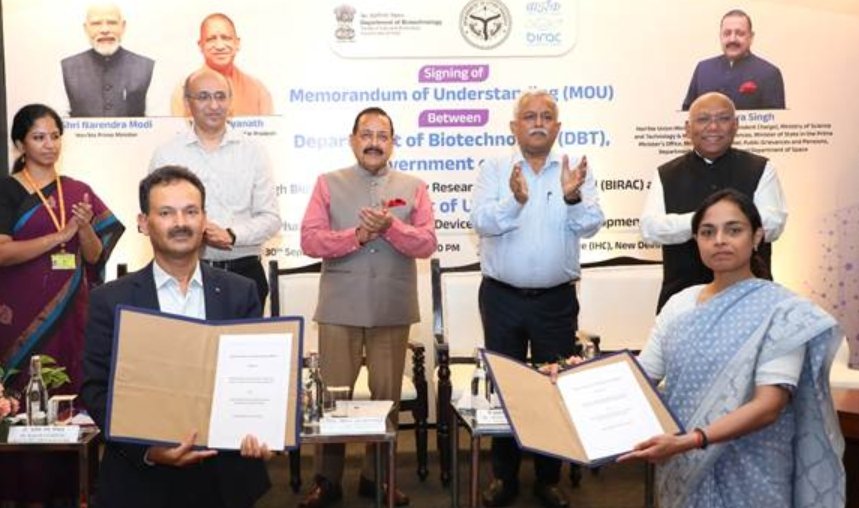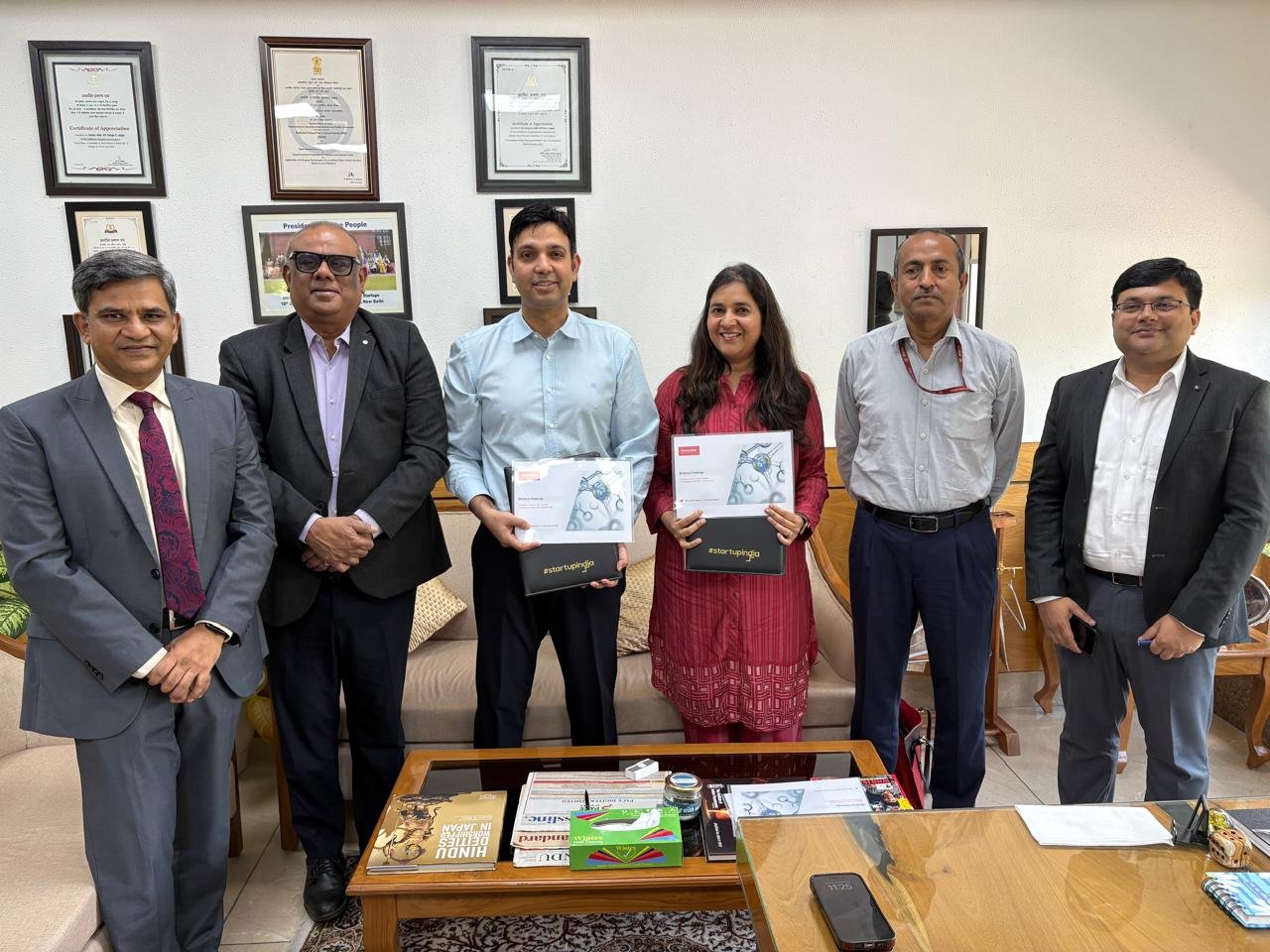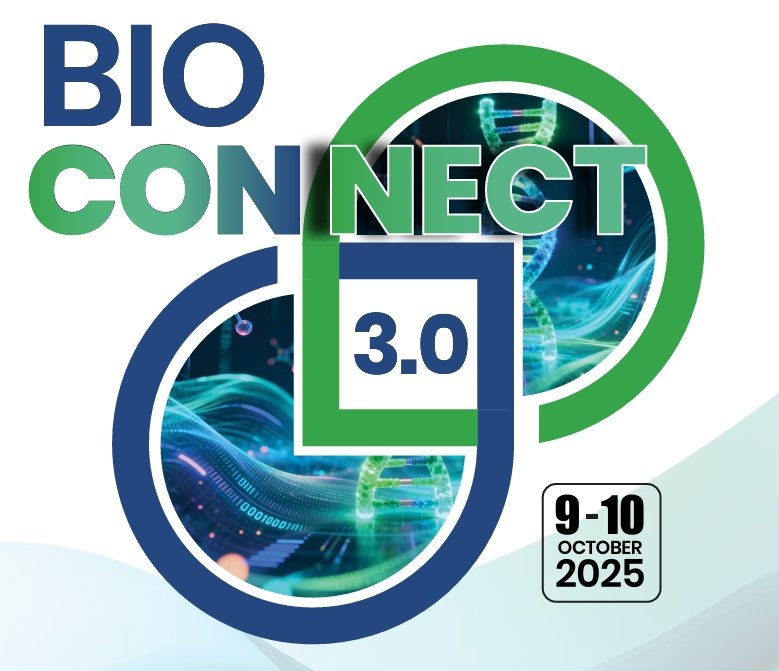Partnerships, a New Growth Model for Biopharma Firms
July 07, 2005 | Thursday | News
Indian biopharmaceutical companies are dreaming big. To achieve this, they
have taken the route. They are forging partnerships either in R&D, marketing
or in manufacturing.
Biocon Ltd, India's leading biotechnology company is in the
forefront in entering into partnerships with other companies. Others in the game
are Serum Institute of India, Nicholas Piramal India, Panacea Biotec, Avestha
Gengraine Technologies, Indian Immunologicals, Wockhardt, Bharat Biotech
International and Biological E. About 20 partnerships/joint ventures have been
signed between biotechnology and pharmaceutical companies in the last 18 months.
Most the leading Indian biopharmaceutical companies have adopted the partnership
strategy as a growth model. Indian companies have started looking at this
business model for different activities such as R&D, manufacturing, contract
research and marketing.
Biocon has entered into alliances in R&D, marketing and
manufacturing spaces with different companies. It has entered into an alliance
with US-based Bristol-Myers Squibb Company to supply recombinant human insulin
in bulk form for nine years. Biocon has also entered into a research tie-up with
North Carolina's Nobex Corporation to jointly develop oral insulin for the
global and Indian market, as well as a strategic partnership with New York-based
Vaccinex to discover and co-develop at least four therapeutic antibody products.
As part of the deals, Biocon will also make equity investments in Vaccinex and
Nobex.
Biocon's subsidiary Syngene International has also entered
into a contract research agreement with the R&D arm of Novartis, the
Novartis Institutes for Biomedical Research Inc. Syngene will conduct research
to support new drug discovery and development, primarily in the early stages,
involving small molecules in oncology and cardiovascular segments.
Serum Institute of India Ltd, a leading manufacturer of
vaccines in India, is another company which is into partnership with an MNC.
Serum Institute has signed an licensing agreement with London-based Lipoxen
Technologies Ltd in a major product development program. The agreement involves
eight new product candidates in total, including protein drugs such as GCSF and
EPO, anti-cancer drugs and vaccines. The Serum Institute provides the active
ingredients and Lipoxen provide the enhanced delivery systems.
The agreement combines Lipoxen's strengths in intellectual
property and innovation in the drug delivery field. Under the agreement Serum
will retain control of marketing in India, Africa, Asia (except Japan) and Latin
America, taking advantage of their existing distribution infrastructure. Lipoxen
retains control of marketing and sub-licensing in the major market territories
and seeks collaboration partners for the marketing of these products in such
territories.
Avestha Gengraine Technologies, a Bangalore-based integrated
biotechnology and bioinformatics company focusing on the convergence between
food, pharma and clinical genomics leading to preventive personalized medicine,
has entered into alliances with companies for R&D and marketing activities.
| The growth models of pharma and
biotech companies
The tepid valuations of many companies on public
markets by venture capitalists may push companies to look at alliances,
mergers and acquisitions as growth models.
With increase in the cost of launching newer drugs and
profit margins being diverted towards R&D activities, alliance,
mergers and acquisition (M&A) have become the norm of pharma and
biotechnology industries. The global trend is big pharma companies are
eyeing biotech companies which are into R&D and developing newer
molecules to enhance their product portfolio.
The significant M&As that happened in 2004 in
global biotech space include acquisition of Tularik by Amgen, the world's
largest biotechnology company, for $1.3 billion. Genzyme acquired
Physician services business of IMPATH for $215 million and ILEX Oncology
for $1 billion. The companies are not limited by geographic boundaries in
their search for strategic partners for growth. A Canadian biotech firm
QLT acquired Atrix Labs for $855 million in stock.
Similarly Icelandic generics major Actavis has acquired
Bangalore-based contract research organization, Lotus Labs in a Euro
20-million all-cash deal. This trend for CRO acquisitions is increasing
and many pharma companies are said to be considering India for such
strategic investments.
The Ahmedabad-based Dishman Pharmaceuticals and
Chemicals has acquired an UK-based contract research company called
Synprotec with an asset base of around £2 million, through its
subsidiary, Dishman Europe. Torrent Pharmaceuticals, again an Ahmedabad-based,
is close to acquiring a German company engaged in generic drugs business
through its German subsidiary. In the recent past, many Indian pharma
companies have acquired European ones. The recent ones include Wockhardt's
acquisition of UK-based generic drugs manufacturer CP Pharmaceuticals for
Rs 83 crore in an all-cash deal; Zydus Cadila's acquisition of the
formulation business of Alpharma of France for a consideration of Euro
5.5m, and more recently, Ranbaxy acquired the French generic drug company
RPG Aventis for around $70 million.
Amalgamations
On the contrary, a few others adopted mergers as a growth model
for their business. In this we find amalgamation of Glenmark Laboratories
and Tasc Pharmaceuticals. The merged new entity would be present both in
the bulk drug and the finished dosage form segments. Even the boards of
Matrix Laboratories and Strides Arcolab, have, in principle agreed to a
merger plan that will take the merged entity into the premier league of Rs
1,000 crore-plus pharmaceutical companies. On completion, the merged
entity - Matrix Strides - would have operations in over 70 countries with
manufacturing operations in India, the US and Latin America. Meanwhile
Matrix Labs has decided to acquire a Belgium-based $263-million pharma
company Docpharma NV.
However, some others continue to look at alliance or
partnership model. Novavax Inc, a specialty biopharmaceutical company has
entered into an agreement with Ranbaxy Labs to evaluate a new transdermal
product. Upon successful completion of the proof of concept study, the
companies expect to enter into a broad commercialization and development
agreement. Abbott India has entered into a fresh distribution agreement
with Novo Nordisk India for the sale and distribution of their insulin
products in India for the period two years as the earlier distribution
agreement with Novo Nordisk had expired by December 31, 2004.
Considering the huge market potential, MNCs are looking
at India to expand their business. Belgium-based Janssen Pharmaceutica,
which has a presence in India through Janssen-Cilag Pharmaceuticals, a
part of Johnson & Johnson (J&J) Ltd, is looking at forging
alliances /partnerships in the area of research and development,
discovery, clinical research and chemical manufacturing.
The prospects for continued growth will depend much on
how successfully these companies adopt these business models, as drivers
behind this trend remain unchanged. |
Avesthagen has entered into a strategic tie-up with two
investors towards furthering its R&D efforts. The company has received a
sizeable amount of investments from two strategic investors including Godrej
Industries Ltd. The strategic partnership is part of its plans of attracting
investments through partnership and the way forward for Avesthagen. It has also
entered into research collaboration with Sequenom Inc., to analyze Sequenom's
proprietary panels of genetic markers associated with diabetes as well as with
breast and lung cancers in Indian patient samples.
The results of this collaboration could provide further
validation of Sequenom's genetic markers and improve the understanding of the
role of these genetic markers in disease onset, progression and therapeutic
response. Avesthagen has announced a strategic joint venture with the
Denmark-based Centre for Clinical & Basic Research (CCBR) and its subsidiary
Nordic Biosciences. Both will work together on a wide array of aspects covering
the diagnosis, treatment and prevention of osteoporosis and osteoarthritis. And
also work together to develop the market in India and worldwide for a
biomarker-based diagnostic kit that significantly improves on existing
technology. It has also entered into research alliance with Cipla to develop
biopharmaceuticals. Under the terms of the agreement, Avesthagen will focus on
research and product development, while Cipla will focus on marketing and
distribution.
In order to strengthen its vaccine portfolio, Hyderabad-based
Biological E has entered into a strategic alliance with the US-based
pharmaceutical major Intercell AG for the development, manufacture and sale of
the latter's Japanese Encephalitis vaccine in Asia. According to the
agreement, Biological E will manufacture the product in India for the Asian
endemic market, while Intercell AG would concentrate to market the product in
the US, Europe and Australia.
Besides biotech-pharma deals we also see a biotech –biotech
deal. One of the major deals is Chiron Vaccines joint venture in India with
Panacea Biotec. This 50:50 joint venture Vaccines Pvt Ltd will focus on
marketing of Hepatitis B and cocktail vaccines in the private markets in India.
Panacea Biotec will look after the institutional sale to UNICEF/WHO.
It has also entered into a collaboration with the UK-based
Cambridge Biostability, for manufacturing vaccines in India using the
"stable liquid technology", which reformulates existing vaccines into
ready-to-inject stable liquids thereby revolutionizing the vaccine delivery
system by eliminating the need of refrigeration for vaccine storage.
Bharat Biotech International Ltd has signed a joint venture
agreement with South Africa's gold and diamond company Mvelaphanda Holdings in
2004 to set up a manufacturing plant for vaccines and generic drugs near
Johannesburg. Under the agreement both Bharat Biotech and Mvelaphanda would have
equal stake. The South African plant would be set up at an investment of Rs
125-150 crore.
Human Biologicals Institute (HBI), a division of the Indian
Immunologicals Ltd, has entered into an alliance with Vins Bioproducts Ltd. This
is mainly for marketing its product called Equine Rabies Immunoglobulin (ERIG),
a drug for animal bite management, under the brand name "AbhayRIG"
through HBI's 2,000-odd "Abhay" clinics spread across the country.
Even Nicholas Piramal India Limited (NPIL), one of the
leading pharmaceutical companies in India focusing on biotechnology, has entered
into agreements with a couple of US-based companies for marketing their biotech
products in India. It has signed an agreement with Gilead Sciences for the
Indian marketing of its biotech drug Ambisome - a treatment for deep-seated
fungal infections. NPIL has also entered into an in-licensing pact with Genzyme
Corporation for marketing Synvisc, a viscose supplement. NPIL has already
entered into a strategic alliance with Biogen Idec, the third largest biotech
company in the world. NPIL's Biotek division is marketing Avonex (Interferon
beta 1a), a leading life-saving therapy for Multiple Sclerosis (MS), in India
and Nepal.
Considering the growth of biotechnology products in the third
world countries Wockhardt with three indigenously developed biotechnology
products has formed majority joint venture in Mexico and South Africa. Wockhardt
has signed a joint venture agreement with Representaciones E Investigaciones
Medicas, SA de CV, one of Mexico's leading national companies. Wockhardt
Mexico SA de CV, 51 percent owned by Wockhardt, will initially market all forms
of insulins manufactured by Wockhardt.
At a later stage, it will market other diabetology products
and biopharmaceutical products. Wockhardt South Africa Pty Ltd, a 51:49 joint
venture between Wockhardt and Pharma Dynamics, will use the regulatory, sales
and marketing expertise of Pharma Dynamics to commercialize the growing
pharmaceutical and biopharmaceutical portfolio of Wockhardt.
These are some of the partnerships that the top Indian
biopharmaceutical companies have entered into to take the lead in the growing
biotechnology industry that has registered a growth of 36.55 percent in 2004-05.
Growth a driver for alliances
The high growth of the biotech industry over the pharma growth is pushing
for more alliances and tie-ups between pharmaceutical and biotechnology
companies in India. Many entrants into biotechnology via tie-ups for marketing
in India continue to focus on alliances. Companies like Glenmark Laboratories,
Claris Life sciences and Emcure Pharmaceuticals are looking for alliances and
seeking permission from the Genetic Engineering Approval Committee (GEAC) for
import and marketing of biotech products in India.
Glenmark Laboratories, which is into marketing of recombinant
biotech products is eyeing the import of r-hu-Epidermal Growth factor for
manufacturing in India a fixed dose combination of 10 ug/GM and Silver
Suphdiazin 1% as a Cream for Topical in burn cases from GGE and Biotechnology,
Cuba. Similarly Ahmedabad-based Claris Life Sciences is seeking GEAC's
permission for import and marketing of r-Human G-CSF, 300mcg in prefilled
syringes in finished form from North China Pharmaceuticals (NCPC) Genetech
Biotechnology Co, Ltd. China. Pune-based Emcure Pharmaceutical which entered the
biotechnology sector with the import and marketing of Erythropoietin developed
by a Chinese company Dragon Pharmaceuticals, is now seeking permission for
import and marketing of r-human Granulocyte Macrophage Colony stimulating factor
in (GM – CSF) from Shenghai Hygene Biopharma Company Ltd. China.
Unlike the global scenario in biosuppliers where we find more
of acquisitions by the leading players consolidating their positions, in
biotechnology industry the trend is towards alliance and partnerships. This is
because most of the biotech companies are privately owned and spend their
resources on highly focused and innovative biotechnology-based research. These
cash constraint firms look for financial support mainly from VCs. Though biotech
is one of the fields VCs are eyeing, they not eager to invest at this point of
time in the biotechnology industry. The only alternative left for these upcoming
biotechnology companies is joining hands with big pharma/ biotech companies.
As rightly pointed out by Ernst & Young in its
"Beyond Borders 2005", for biotechnology companies, partnership is an
important means of mitigating risk as well as a strategic response to business
challenges. Since drug development is an inherently high-risk business,
characterized by large R&D investments and relatively small probabilities of
success, partnerships will always be an important factor in diversifying and
mitigating risk. It is also one of the ways of entering newer potential markets.
Big pharma companies and some of the leading biotech
companies are looking for ways to expand their product pipelines and identify
promising targets and products. For many smaller biotech companies, raising
capital is an overriding concern. This motivates them to enter into alliances to
generate revenues or to accelerate their path to products, as investors in both
the public and private markets demonstrate a strong preference for companies
with products or late-stage pipelines.
On the other hand, leading companies are entering into joint
ventures with local firms to market their range of products. Based on the
present scenario, the year 2005 will see more partnerships provided the
companies get support from the government by enforcement of the product patent.
| Some
of the partnerships signed in the last 18 months |
| Companies |
Collaboration |
| Biocon |
Bristol-Myers
Squibb |
Supply |
| Biocon |
Nobex
Corporation |
R&D |
| Biocon |
Vaccinex |
R&D |
| Syngene International |
Novartis
Institutes for Biomedical Research Inc |
Contract
research |
| Serum Institute of India |
Lipoxen Technologies |
Product
development |
| Human Biologicals Institute |
Vins Bioproducts |
Marketing |
| Biological E |
Intercell AG |
R&D,
manufacture and marketing |
| Panacea Biotec |
Chiron Vaccines |
Marketing |
| Panacea Biotec |
Cambridge Biostability |
Manufacturing |
| Nicholas Piramal |
Gilead Sciences |
Marketing |
| Nicholas Piramal |
Genzyme Corporation |
Marketing |
| Avestha Gengraine Technologies |
Godrej Industries |
Attracting
investments |
| Avesthagen |
Sequenom Inc |
R&D |
| Avesthagen |
CCBR and its subsidiary Nordic
Biosciences |
R&D |
| Avesthagen |
Cipla |
R&D |
| Bharat Biotech International |
Mvelaphanda
Holdings |
Setting up manufacturing
facility |
| Wockhardt |
Representaciones E
Investigaciones Medicas |
Marketing |
| Wockhardt |
Pharma Dynamics |
Marketing |
Narayan Kulkarni









